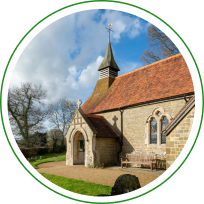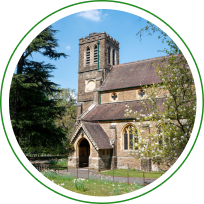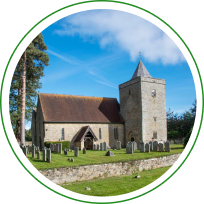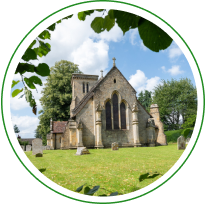We believe a church has stood on the present site in Iping since Anglo-Saxon times. The original building was probably a wooden structure as no remains have been found.
The present building has all the charm of a small country church and the indefinable atmosphere of a place where generations of Iping parishioners have worshipped for centuries.
In the 19th century the enclosing of Iping and Chithurst Commons caused shifts of population locally. Also, the paper mill at Iping provided additional employment as an alternative to agriculture and the population of Iping increased.
The old Norman church was too small to meet the needs of worshippers. In 1840 the old church was demolished and replaced by a larger building, incorporating a tower designed by Thomas Greenshield.
Another population swing resulted in the church being found to be too large. It was therefore, again replaced in 1885 by a smaller building, designed by the well- known Victorian architect, Loftus Brook, in the style of the 13th century.
The new church retained Greenshield’s tower which houses a single bell, retained from the old Norman church, cast by Roger Tapsil, and dated 1616. A further link with the old church can be seen built into the east wall of the porch. This is a small 13th century grave slab. This is unusual because instead of the usual cross the head is in the form of a fleur-de-lys.
In 1959 Iping became united with Stedham to form the parish of Stedham with Iping.
In 2000 a young yew tree, grown from the ancient yew in Stedham churchyard (reputed to be over 2000 years old and thus a link with the time of Jesus), after a blessing by the Bishop of Chichester in the cathedral, was planted in Iping churchyard close to the south- west corner of the church to mark the new millennium.
Today Iping church is substantially as it was when rebuilt in 1885. It is a graceful little church built of honey-coloured stone (probably from Fittleworth Quarry).
An unusual feature is its very high tower arch. The old memorial tablets on the walls of the nave, and the standard of the stone-masonry throughout, are excellent. With the very fine lime trees at either end of the churchyard, the church greatly embellishes this lovely village.
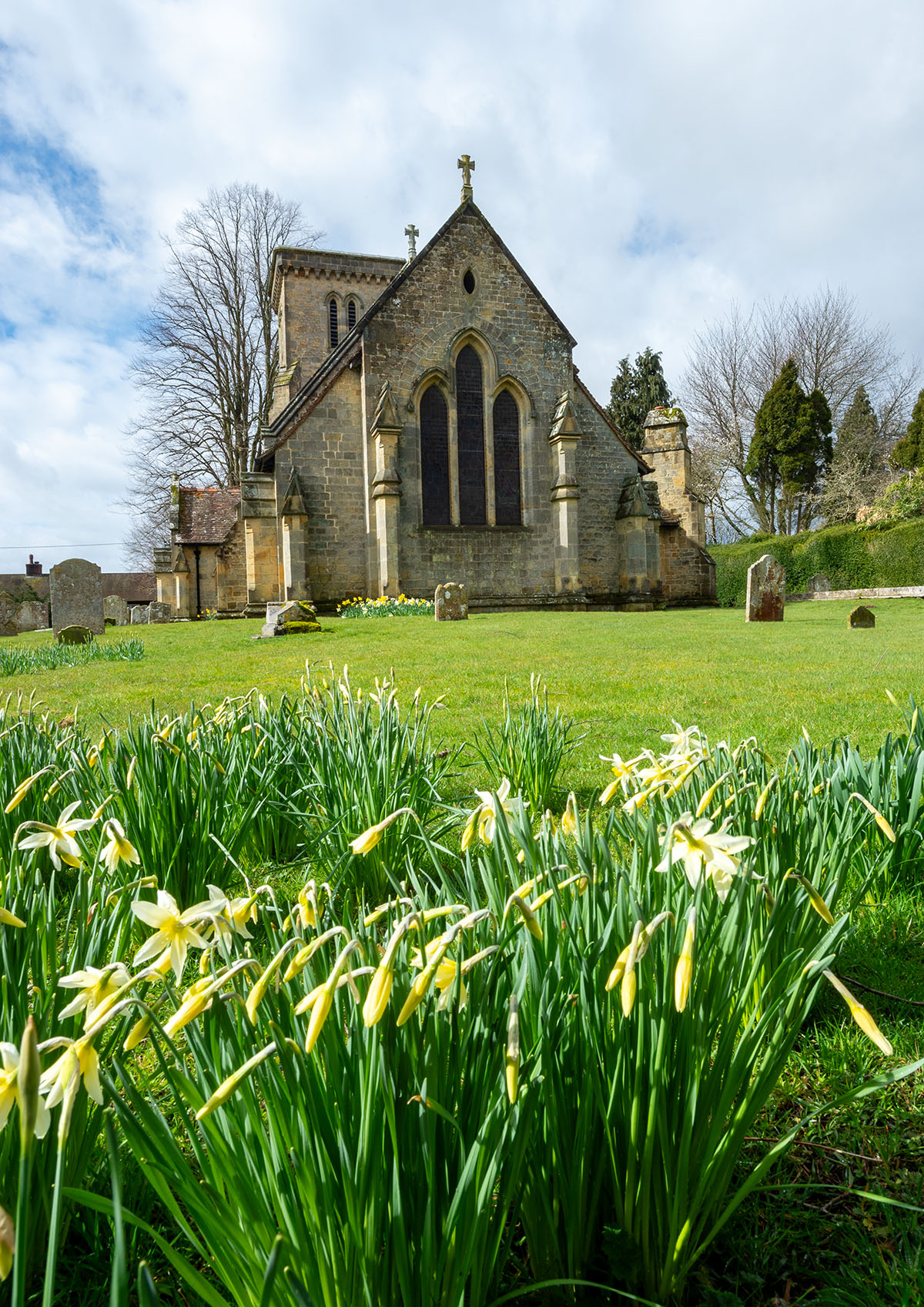 |
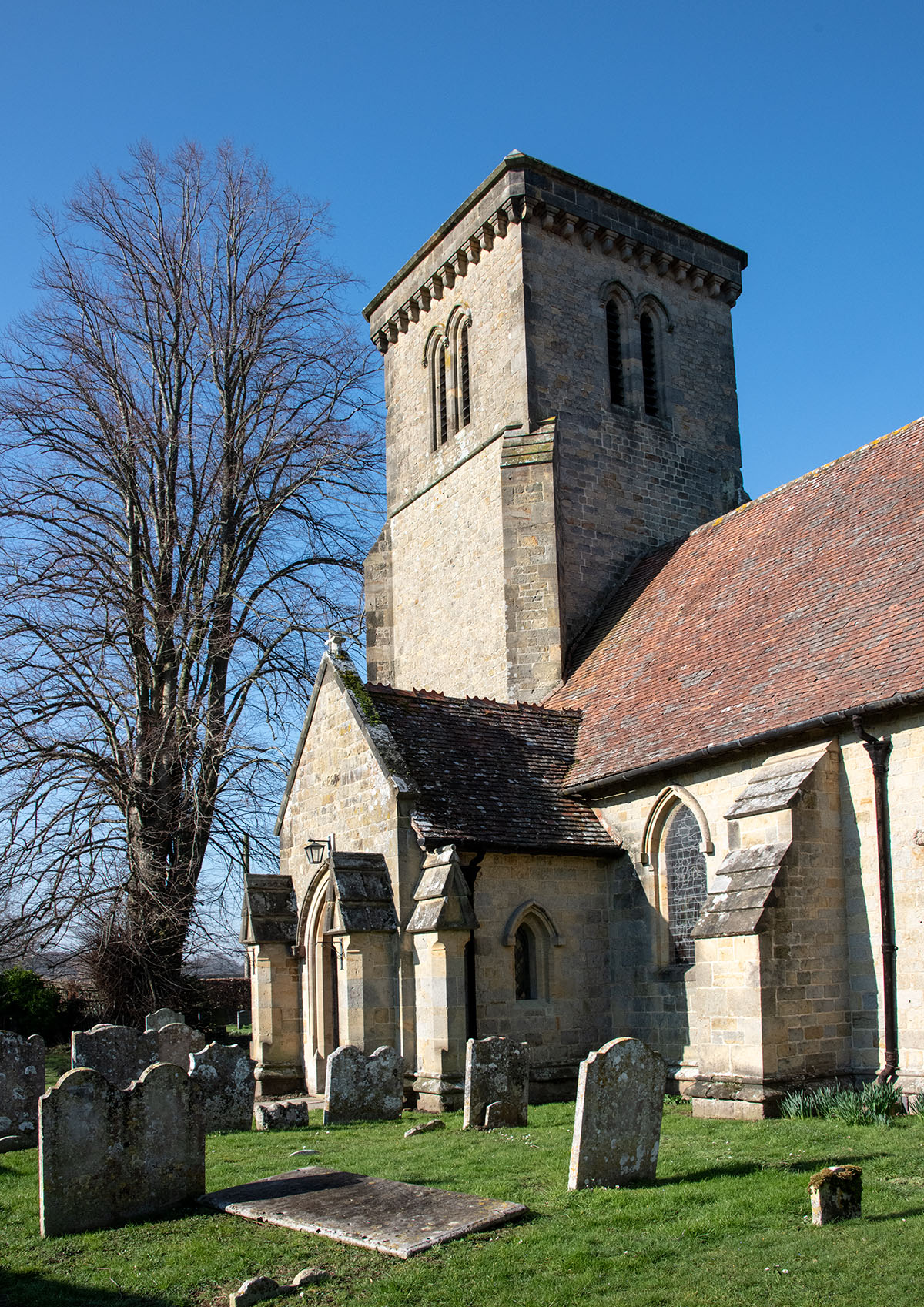 |
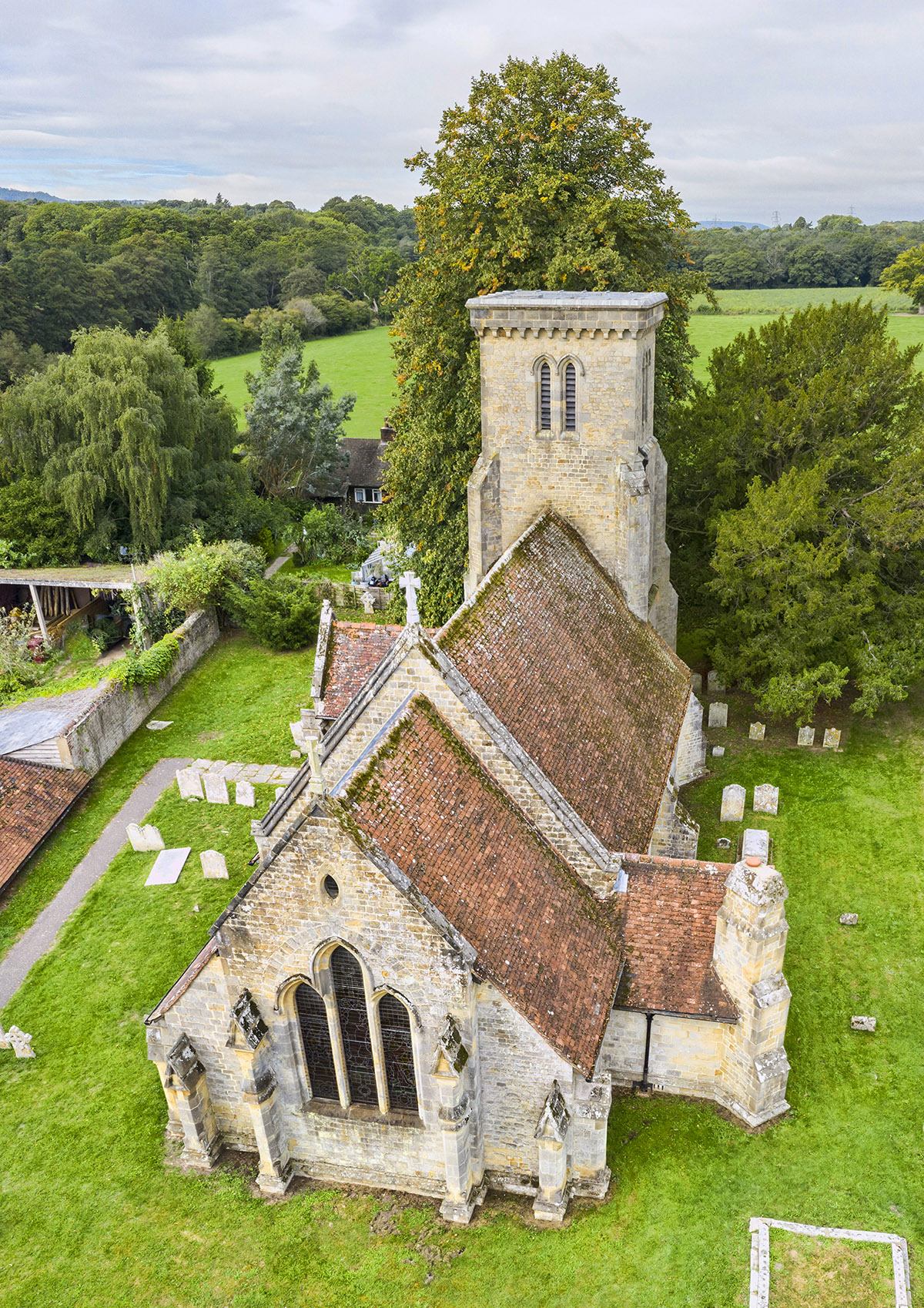 |
